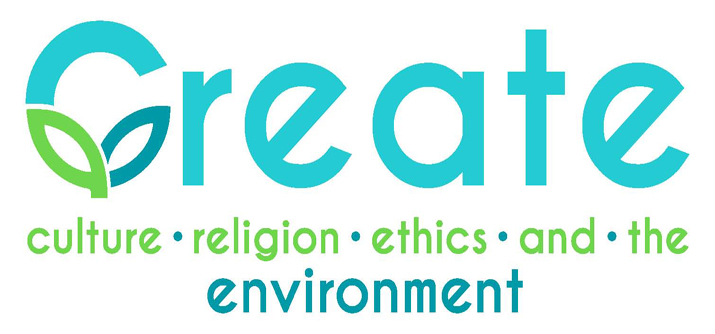The Emory CREATE (Culture, Religion, Ethics, and the Environment) Program

by Cory Andrew Labrecque, PhD
After reading Paul Hawken’s The Ecology of Commerce, Ray C. Anderson, the visionary entrepreneur who sat at the helm of the globe’s largest designer-manufacturer of carpet tile (Interface, Inc.), came to see things differently. It was, perhaps, the straw that broke his lingering uneasiness with the business-as-usual routine of the everyday. Concerns about “industrial ecology,” the earth’s “carrying capacity,” and “stewardship” were suddenly on the radar and Ray wanted to make certain that the corporate world was paying attention. “If we’re successful,” Ray contended, “we’ll spend the rest of our days harvesting yester-year’s carpets and other petrochemically derived products, and recycling them into new materials; and converting sunlight into energy; with zero scrap going to the landfill and zero emissions into the ecosystem. And we’ll be doing well … very well … by doing good. That’s the vision.”
The “radical industrialist” was convinced that good business and the cultivation of good biotic citizenship must come hand-in-hand.
Saint Francis of Assisi, who the historian Lynn White called “the greatest radical in Christian history since Christ,”[1] is said to have counseled his followers in this way: “preach the Gospel always and, if necessary, use words.” Ray seems to have made this his own. By 2010, Interface, Inc. was able to reduce greenhouse gas emissions by 35 percent, fossil fuel consumption by 60 percent, waste to landfill by 82 percent, and water use by 82 percent. And yet the company marked an increase in sales by 63 percent and more than doubled its earnings.[2]
In honor of the late “green capitalist,” the Ray C. Anderson Foundation was established to promote its patron’s “notion of businesses doing well by doing good.”[3] The Center for Ethics is privileged to have recently been awarded a four-year grant from the Foundation to examine the cultural, religious, and ethical underpinnings of American environmentalism and our evolving understanding of what it means to live sustainably.
In January 2014, we officially launched the Emory CREATE (Culture, Religion, Ethics, and the Environment) Program, which has stirred a considerable amount of excitement and interest across campus. This multidisciplinary program will draw on the wisdom of some of the nation’s best thinkers in the field to produce high-level scholarship on the religious, ethical, and cultural narratives and justifications for the environmental and sustainability movements in the United States and abroad, with a particular focus on their impact on business and industry. Over the course of the grant, we will host two conferences, produce an edited volume and numerous articles, and generate action-oriented curricula that will enable clergy, faculty, community-based businesses, and service and leadership organizations to constructively engage – each in their respective communal contexts – the cultural, religious, and ethical sensibilities of our current approaches to environmentalism, sustainability, and care of the earth.
As of this writing, the Center is gathering a small number of leading scholars – social scientists, academics of religion, ecologists, corporate sustainability experts, historians, community activists, and others – to constitute a National Advisory Council that will help identify pressing needs at the intersection of culture, religion, ethics, environment, sustainability, and industry in order to effectively and efficiently guide the work of the CREATE Program. Members of the Council will come together at the Center for Ethics in August 2014.
[1] Lynn White, Jr., “The Historical Roots of Our Ecologic Crisis,” Science 155.3767 (1967): 1206.
[2] Ray C. Anderson Foundation, “Ray C. Anderson Biography,” (accessed April 30, 2014).
[3] Ray C. Anderson Foundation, “About the Foundation,” (accessed April 30, 2014).
CREATE National Advisory Council
- Sally Bingham
- William W. Buzbee
- Fred Scherlinder Dobb
- Kevin F. Forbes
- Dianne Glave
- Rawson Haverty
- Ciannat Howett
- Bruce Jennings
- Uriel Kitron
- Elizabeth Moore
- Carol Singer Neuvelt
- Bobbi Patterson
- Laura Turner Seydel
- Emory Center for Ethics Lead Faculty
- Paul Root Wolpe
- Kathy Kinlaw
- Jonathan K. Crane